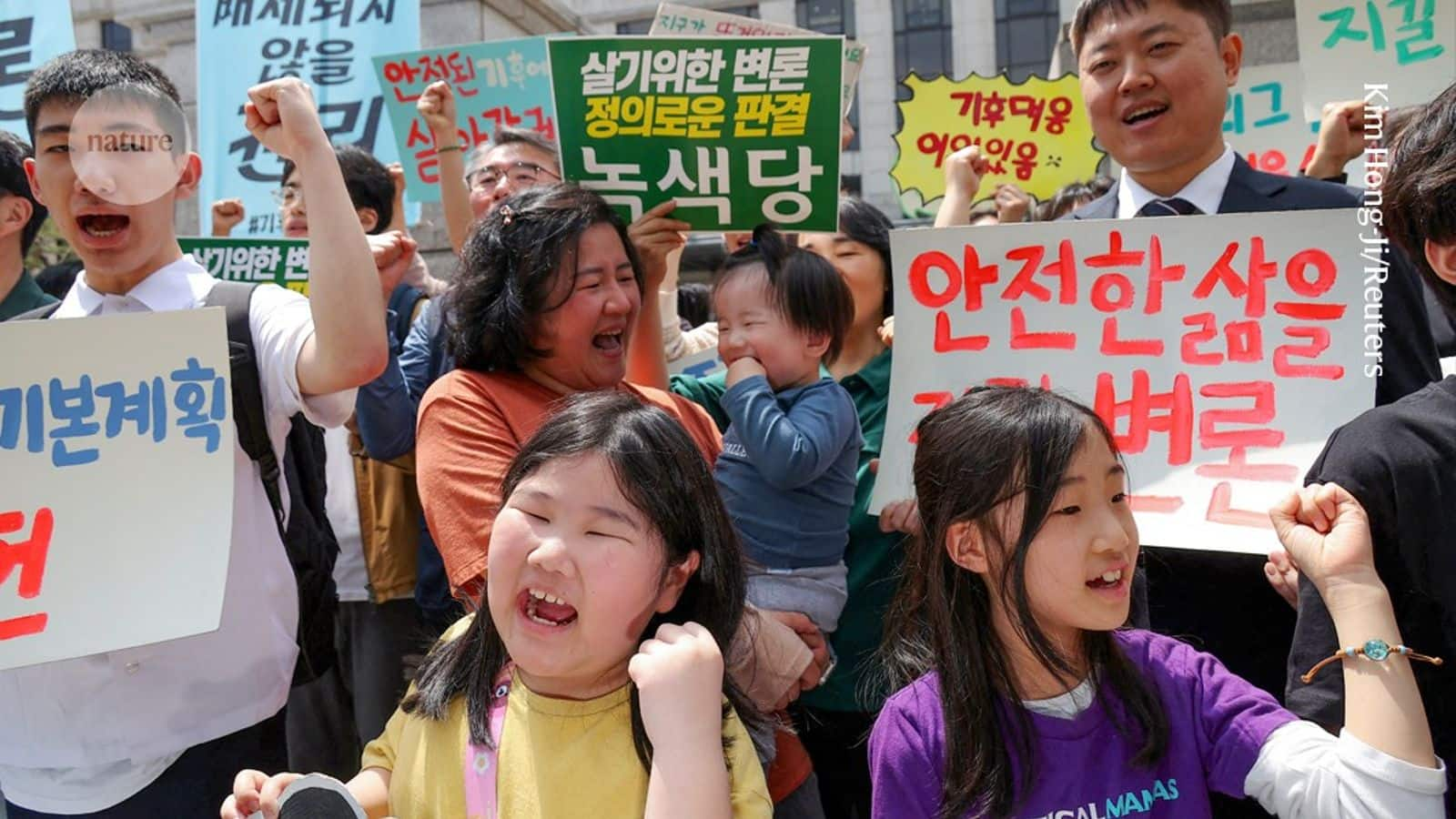
Why children, babies in South Korea are suing the government
What's the story
In a first-of-its-kind lawsuit in East Asia, a diverse group of plaintiffs, including babies, children, adults, and even an unborn child, have initiated legal action against the government in South Korea over its climate change policies. The plaintiffs argue that the government's climate goals are insufficient, endangering their right to live in a healthy environment. The case is the outcome of merging four similar lawsuits that were filed between 2020 and 2023.
Symbolic representation
Case symbolizes protection of future generations
One notable case was lodged by parents on behalf of their children, including an unborn child, who is now one year old and nicknamed "Woodpecker." Choi Hee-woo or "Woodpecker" is the youngest of the 62 children involved. Masako Ichihara, a climate-litigation researcher at the Kyoto Climate Adaptation Center in Japan, stated that Woodpecker serves as "a powerful symbol for how society should protect unborn future generations from the impacts of climate change."
Climate targets
South Korea's climate goals under scrutiny
The legal counsel for the case, Sejong Youn, anticipates a verdict later this year before South Korea revises its climate plans for submission to the United Nations (UN). These plans, known as its nationally determined contribution (NDC), currently aim to reduce greenhouse gas emissions to 40% below 2018 levels by 2030. However, if all countries adopted this level of ambition, by the end of the century, temperatures might rise by up to 3°C above pre-industrial levels, Climate Action Tracker warned.
Policy influence
Potential impact of lawsuit on climate policies
Youn believes that if they secure a constitutional ruling on the insufficiency of the current NDC this year, it could enhance the government's climate ambitions while working on their 2035 target. Notably, in 2021, South Korea pledged to reduce carbon emissions by 290 million tons by 2030 and achieve net-zero carbon emissions by 2050. To achieve this goal, it must reduce emissions by 5.4% every year starting in 2023, a target that has yet to be met.